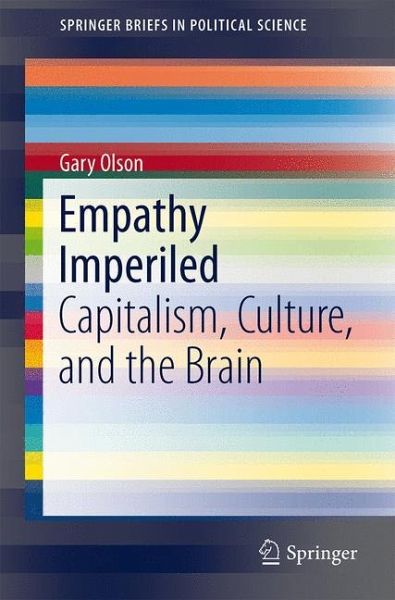
Empathy Imperiled
Capitalism, Culture, and the Brain

PAYBACK Punkte
21 °P sammeln!
The mostcritical factor explaining the disjuncture between empathy's revolutionarypotential and today's empathically-impaired society is the interaction betweenthe brain and our dominant political culture. The evolutionary process hasgiven rise to a hard-wired neural system in the primal brain and particularlyin the human brain. This book argues that the crucial missing piece inthis conversation is the failure to identify and explain the dynamicrelationship between an empathy gap and the hegemonic influence of neoliberalcapitalism, through the analysis of the college classroom, the neoliberals...
The mostcritical factor explaining the disjuncture between empathy's revolutionarypotential and today's empathically-impaired society is the interaction betweenthe brain and our dominant political culture. The evolutionary process hasgiven rise to a hard-wired neural system in the primal brain and particularlyin the human brain. This book argues that the crucial missing piece inthis conversation is the failure to identify and explain the dynamicrelationship between an empathy gap and the hegemonic influence of neoliberalcapitalism, through the analysis of the college classroom, the neoliberalstate, media, film and photo images, marketing of products, militarization,mass culture and government policy. This book will contribute to an empiricallygrounded dissent from capitalism's narrative about human nature. Empathyis putting oneself in another's emotional and cognitive shoes and then actingin a deliberate, appropriate manner. Perhaps counter-intuitively, itrequires self-empathy because we're all products of an empathy-anesthetizingculture. The approach in this book affirms a scientific basis for acting with empathy,and it addresses how this can help inform us to our current political cultureand process, and make its of interest to students and scholars in politicalscience, psychology, and other social sciences.














